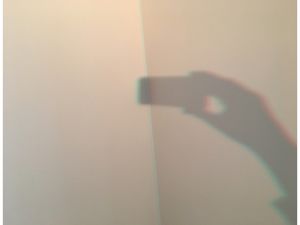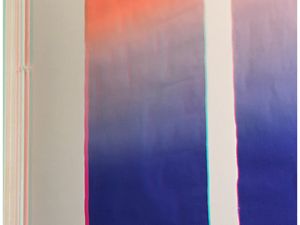AnaB : notes on Merleau Ponty's essay
notes on M-Ponty
Experience and objective thought. The problem of the body
In Phenomenology of Perception, Merleau Ponty is approaching many realms of the question of the perception and awareness of our world. What is the human reality, where does our perception begin and where does it end, what is the final experience of the perceived object, from where is the same object perceived, and what lies beyond the technicality of the eyes. Observing the roots of perception, he is going against doctrines which treat perception as a simple result of the action of external things on our body, and also against those doctrines which insist on the autonomy of consciousness.
Starting from the spacial perspectives, he begins by thinking that our perception ends in objects, and the object once constituted appears as the reason for all the experiences of it which we have had or could have (had).
When trying to sketch out what it means to actually see an object, it can be said that first one must “enter it” and lose all the landscape around, to be able to concentrate on it. Following that thought, he goes further in the relation of the object within the landscape/horizon structure, that is, in other world - the perspective, which takes him into the conclusion that there is no obstacle when one wants to see the object, it is also the means whereby the objects are distinguished one from each other
“* .. to see is to enter a universe of beings which display themselves meaning to look at an object is to inhabit it, and from this habitation to grasp all things in terms of the aspect which they present to it” is revealing that, in the act of looking, every object is a mirror of all others, and that is the nature of the process of seeing, and perceiving.
A human - himself - obsessed with his “being” and forgetful of the perspectivism of his experience, he treats the experience as an object and a deduction from the relationships between objects. In that process he - we regard our bodies - that is our point of view upon the world, as one of the objects of that world. The path to detach yourself from the experience of the body, in fact, we must discover the origin of the object as the very center of our experience , we must describe the emergence of being and we must understand how, paradoxically there is for us an in-itself.
The genesis of the objective body is only a moment in the constitution of the object, and the body, by withdrawing from the objective world, will carry with it the intentional threads linking to its surrounding and finally reveal to us the perceiving subject as the perceived world. In conclusion, we are always emerged in the world and perceptually present to it.
Big up to Pulling Focus.
[Steve's comments give citations, use the Harvard method, and if you quote something use ".." Most of this text is copied and pasted from this book http://alfa-omnia.com/resources/Phenomenology+of+Perception.pdf with no acknowledgement. The text from this publication reads: "Obsessed with being, and forgetful of the perspectivism of my experience, I henceforth treat it as an object and deduce it from a relationship between objects. I regard my body, which is my point of view upon the world, as one of the objects of that world" You have changed some pronouns, but it is the same. Technically (and I suppose actually) this is plagiarism and can get you thrown off the course. If the text is not cited and if it is not in "..." you intend to claim this combination of words as your own. The task was to make a synopsis of a text. Please pick a text you care about and make a synopsis of it. Big up to Pulling Focus.]


